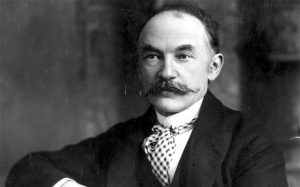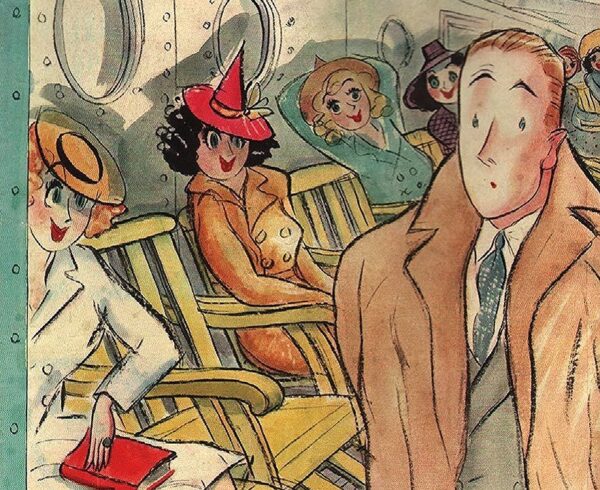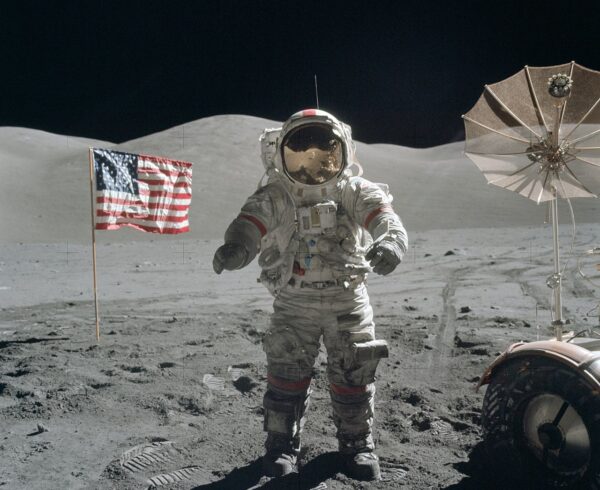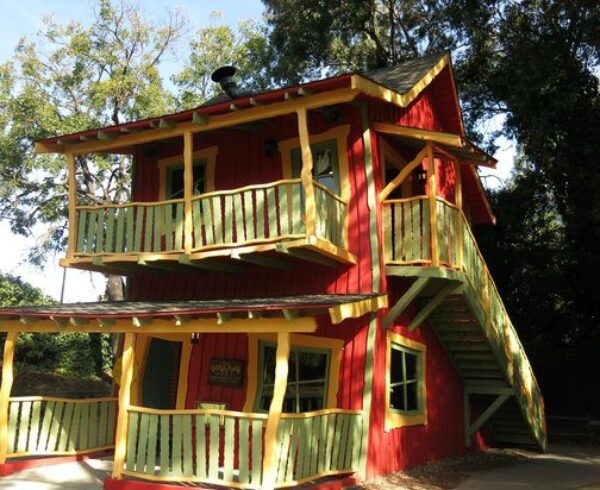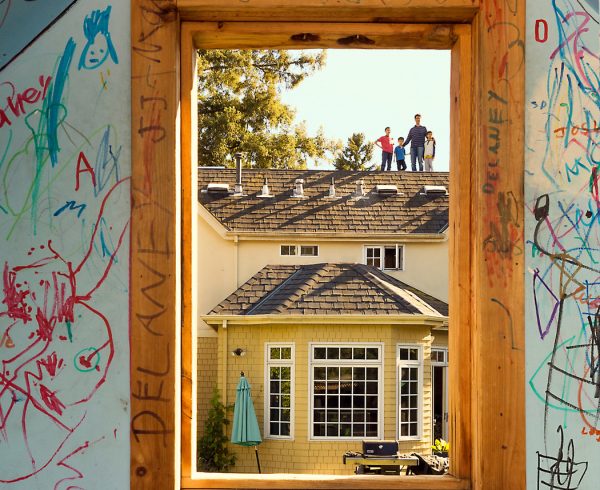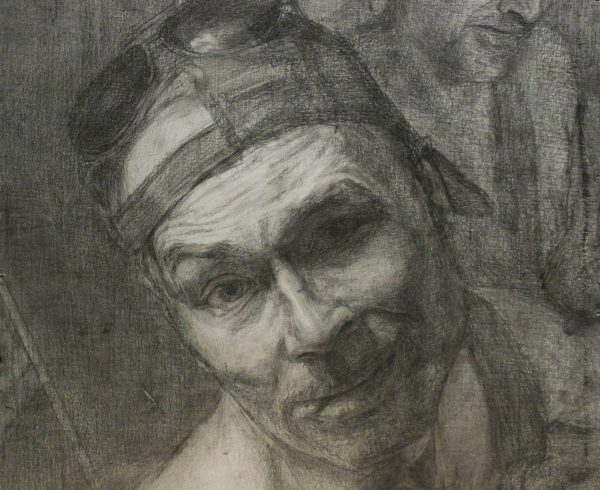There’s something I like about writers and artists who are able to do their work while holding down another job. It’s encouraging, because most of us in creative fields are unable to support ourselves from sales and royalties alone. It adds to my admiration for the person to know they are able to do several things well. Philip Glass, considered one of the most influential music makers of the late 20th century, worked as a cab driver and plumber. It’s fun thinking of T.S. Eliot as a banker while writing The Waste Land and Wallace Stevens working 40 years at the Hartford Accident and Indemnity Company while writing The Man With the Blue Guitar.
For many, our first encounter with the writer, Thomas Hardy, was when we read Return of the Native in high school. For others, it was viewing either the 1967 or 2015 versions of Far from the Madding Crowd or the BBC production of Tess of the d’Urbervilles. But Hardy was also trained as an architect and worked as a draftsman. Until recently it was thought his ideas remained on paper alone, and that his projects were never built. But a chance discovery in a Windsor church may reveal otherwise. Click here to read about a discovery that’s like something from a detective story.
Here are two Thomas Hardy poems that I’m sharing mainly because I like them.
The Choirmaster’s Burial
He often would ask us
That, when he died,
After playing so many
To their last rest,
If out of us any
Should here abide,
And it would not task us,
We would with our lutes
Play over him
By his grave-brim
The psalm he liked best—
The one whose sense suits
‘Mount Ephraim’—
And perhaps we should seem
To him, in Death’s dream,
Like the seraphim.
As soon as I knew
That his spirit was gone
I thought this his due,
And spoke thereupon.
‘I think’, said the vicar,
‘A read service quicker
Than viols out-of-doors
In these frosts and hoars.
That old-fashioned way
Requires a fine day,
And it seems to me
It had better not be.’
Hence, that afternoon,
Though never knew he
That his wish could not be,
To get through it faster
They buried the master
Without any tune.
But ’twas said that, when
At the dead of next night
The vicar looked out,
There struck on his ken
Thronged roundabout,
Where the frost was graying
The headstoned grass,
A band all in white
Like the saints in church-glass,
Singing and playing
The ancient stave
By the choirmaster’s grave.
Such the tenor man told
When he had grown old.
The To-Be-Forgotten
I
I heard a small sad sound,
And stood awhile among the tombs around:
“Wherefore, old friends,” said I, “are you distrest,
Now, screened from life’s unrest?”
II
–“O not at being here;
But that our future second death is near;
When, with the living, memory of us numbs,
And blank oblivion comes!
III
“These, our sped ancestry,
Lie here embraced by deeper death than we;
Nor shape nor thought of theirs can you descry
With keenest backward eye.
IV
“They count as quite forgot;
They are as men who have existed not;
Theirs is a loss past loss of fitful breath;
It is the second death.
V
“We here, as yet, each day
Are blest with dear recall; as yet, can say
We hold in some soul loved continuance
Of shape and voice and glance.
VI
“But what has been will be —
First memory, then oblivion’s swallowing sea;
Like men foregone, shall we merge into those
Whose story no one knows.
VII
“For which of us could hope
To show in life that world-awakening scope
Granted the few whose memory none lets die,
But all men magnify?
VIII
“We were but Fortune’s sport;
Things true, things lovely, things of good report
We neither shunned nor sought … We see our bourne,
And seeing it we mourn.”
And one last thing, a list of other authors who had jobs that might surprise you.


